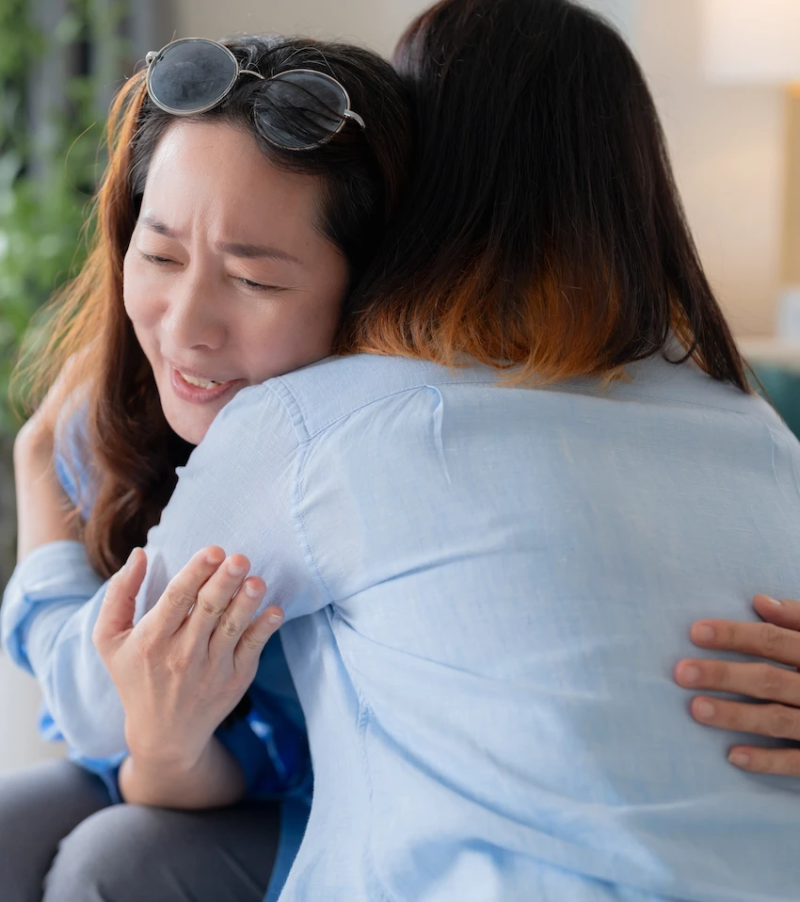When a relationship causes anxiety, we are groomed to believe our anxiety is the problem. After all, anxiety can strangle love, suffocate it, and tear it apart, leaving most of us to believe that relationships and anxiety simply don’t mix.
If we feel anxious, we believe we need to get ourselves under control lest we ruin our relationship, adding pressure to the anxiety we are already feeling. This is never helpful.
Emotionally intelligent people understand the value of relationship anxiety
For people who are emotionally aware, anxiety isn’t the problem at all. These people start by determining what the anxiety is trying to tell them. They ask, is there something important I need to hear?
The most important thing to know about anxiety is it isn’t dangerous, it can be a help to you. It is a sensitive, amazing tool we all have to pick up on potential threats to the things in life we care about most. Ultimately, anxiety wants to be recognized and understood.
Psychiatrist and neuroscientist, Dr. John Kruse further explains, "In 30 years of helping patients with anxiety, I’ve seen that reframing anxiety as a problem of attention often provides pathways for escape. Strategies that help an individual shift focus [...] toward how they want to act and be in the world right now, empower people and alleviate anxiety."
Six lessons that can be learned from relationship anxiety
1. Relationship anxiety doesn't mean your love is doomed
Intelligent people recognize that anxiety doesn't have to mean something is wrong — in fact, it's common even in great relationships. Especially if you are prone to worrying or are with a partner who doesn’t communicate clearly, anxiety will be a part of your relationship and that doesn’t necessarily make it a bad thing.
Social by nature, we are pulled powerfully to love, long to feel connected, and want to protect our connections when we secure them. It isn’t hard to feel anxious when we don’t feel connected, and also anxious we do feel connected, anticipating a time when we may not be.
2. Anxiety means you care
 fizkes via Shutterstock
fizkes via Shutterstock
Fundamentally, anxiety means you care — we can only worry about things we care about — and relationships might be the most important thing to us. We care deeply about securing love and keeping it safe. And we feel anxiety when love might be at risk.
We want our relationships to work and we also worry about not having them. It’s hard to imagine not feeling anxious from time to time when it comes to love.
3. Relationship anxiety highlights a challenge to be addressed
Take a moment to acknowledge and describe how you’re feeling. Describing the emotion can lower your distress according to research on the impact of alexithymia (describing emotions) on anxiety in Current Psychiatry Reviews. Are you feeling a normal amount of protective anxiety, or is there a real threat?
Anxiety can be just about you and the insecurities you bring to every relationship, or anxiety can reflect stresses in the relationship, weeding out what’s important to your relationship is important.
4. It's an opportunity to detangle your messes
We all bring our previous experiences or "baggage" into relationships — we can’t help but do this. But fears and anxieties left over from our childhood or previous relationships can flare up in current relationships.
Unrecognized baggage can confuse anxiety’s signal and add to what might otherwise be a manageable anxiety load, making us more irritable, less patient, and quicker to react.
Recognizing your buttons are getting pushed and the situation is similar but not the same can help lower your anxiety again and direct your focus to the actual problems at hand — your communication, the time you’re spending together, and how you are feeling. These are the stressors that deserve your attention and your collective solutions.
Psychologist Suzanne Manser suggests one method to observe your anxiety, "When you stand in front of the feeling and observe it, you automatically have some separation from it. You've put some room between you so you can see its edges. You've found a way to have a perspective about it."
5. Recognizing the motivation in anxiety to solve the problem
 WHYFRAME via Shutterstock
WHYFRAME via Shutterstock
Instead of trying to ignore your relationship anxiety, recognize the motivation it delivers to do something about the problem.
Are you worried about communication, constant unresolved fighting, betrayals of trust, or a lack of safety? These fears are real and are providing you with information and energy to take constructive action.
6. Sometimes you need to ask for help
If detangling your anxiety or communicating effectively proves to be a roadblock, it’s time for help. Friends and loved ones can be a great support, but sometimes their guidance doesn’t always feel helpful.
A professional therapist can help you detangle your feelings and work through the roadblocks that are holding you and your relationship back. Ultimately the goal of therapy is to help you understand yourself and your relationships better so that you can more clearly see and implement solutions that are needed.
It is normal to worry about even the healthiest relationships, especially if worry comes naturally or if we have had reason to worry in the past.
When a relationship causes anxiety, try not to be spooked, or jump to the absolute worst conclusion. Thinking about anxiety as useful, rather than a nuisance, can help you use it constructively.
Don’t be afraid to say that you care about your partner and your relationship. This sometimes can be anxiety’s most effective use, fueling communication and intimacy to ultimately protect your bond.
Dr. Alicia Clark has been a practicing psychologist for over 25 years and has been named one of Washington’s Top Doctors by Washingtonian Magazine. She is the author of Hack Your Anxiety: How to Make Anxiety Work for You In Life, Love, and All That You Do.
YourTango may earn an affiliate commission if you buy something through links featured in this article.
This article was originally published at Dr. Alicia Clark's blog. Reprinted with permission from the author.



